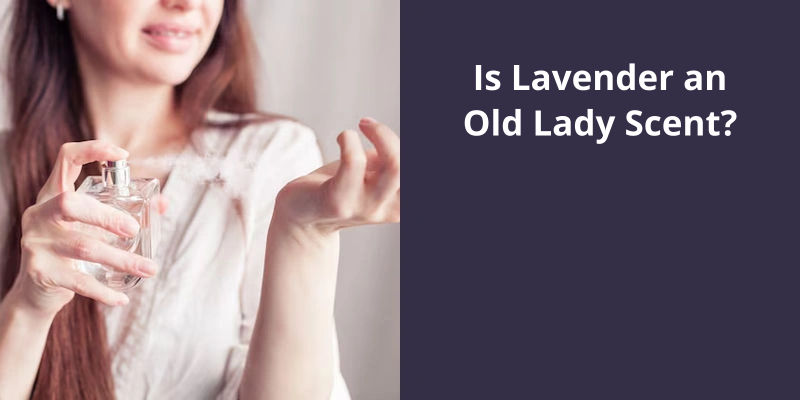People’s preference for the smell of Oud can differ widely as scent is a highly personal experience. Oud, also known as Agarwood, is a rich and complex fragrance, often described as warm, woody, and slightly sweet. While it is highly valued in certain cultures, especially Middle Eastern and Asian communities, for its unique and high-quality fragrance, some people may find it to be too strong or intense. This varied response to Oud can be attributed to the nature of our sense of smell, which is influenced by personal, cultural, and even genetic factors. Therefore, while many people enjoy the fragrance of Oud and appreciate it as a luxury scent, others may not have the same liking for it.

What Makes an Oud Smell?
Oud oil is extracted from the heart of the Agarwood tree. The tree is native to Southeast Asia, including countries like Laos, Cambodia and Vietnam, and also found in parts of India and Papua New Guinea. Like fine wines, the quality of oud varies depending on a variety of factors including, the age of the tree, the location it’s grown, and the method of extraction. The highest quality oud comes from old-growth trees.
The rich, signature scent of oud is due to a complex chemical profile found in it’s natural oil. It’s composed of various sesquiterpenes, including agarospirol, agarol, and delta-guaiene.
The use of oud in perfumes dates back to ancient times, where it was highly valued by royalty and used in religious ceremonies. Today, it’s still considered a luxury item with prices ranging from a few hundred to thousands of dollars per ounce. Despite it’s high cost, the demand for oud continues to grow due to it’s popularity with both men and women.
The sense of smell is a powerful and evocative one, and different scents can have varying effects on our moods and emotions. Researchers have conducted numerous studies to determine which smells are most appealing to people, and the results often vary depending on the sample group and methodology. However, one finding has remained consistent across various studies: the sweet scent of vanilla is consistently rated as the most pleasant smell, while the pungent aroma of sweaty feet is universally disliked.
What Is the Best Thing to Smell Like?
Theres nothing quite like a good smell. From the moment we wake up in the morning to the time we go to bed at night, were constantly surrounded by smells that can either uplift our spirits or bring us down. But what, exactly, is the best thing to smell like? According to a recent study, the answer is vanilla. Participants in the study were asked to rate a variety of smells on a scale from one (worst) to 10 (best), and vanilla came out on top.
But why vanilla? There are a few possible explanations. For one, vanilla is a familiar scent that most people associate with something pleasant, like baking or ice cream. It’s also a soft, comforting scent thats not too overwhelming. In fact, some studies have suggested that vanilla can even help to reduce anxiety and promote relaxation.
Of course, not everyone is going to love the same smells. In fact, the study also revealed that theres one scent thats universally disliked across all cultures: sweaty feet. It’s not hard to understand why, either. Sweaty feet are associated with odours that are foul, pungent, and generally unpleasant. No one wants to be around someone with stinky feet, and it seems that no one wants to smell like that either.
But what about other smells? Are there any other scents that people tend to love or hate? The study didnt delve too deeply into this, but there are certainly some scents that are notorious for being divisive. For example, some people love the smell of lavender, while others find it overpowering. Similarly, some people are drawn to the scent of patchouli, while others cant stand it.
One thing thats worth noting, however, is that theres a difference between smelling good and wearing too much perfume or cologne. Even if youre wearing a scent thats generally well-liked, if you apply too much of it, you could end up overpowering those around you and making them uncomfortable. So, if youre looking to smell your best, it’s important to use fragrances sparingly and apply them strategically – for example, to your pulse points, where the scent will naturally diffuse.
The Science of Smell and How It Affects Our Mood and Behavior
The study of how we process and perceive smell can impact our emotions and actions. Different scents can trigger certain feelings or memories, leading to changes in our mood and behavior. This field of research is known as the science of smell.
The complexity of fragrance notes found in oudh is undeniable, offering a unique and enticing aroma that’s captivated the senses for centuries. From it’s pungent yet pleasing mix of warm, smoky notes to the subtle touches of floral and fruit, oudh remains a beloved fragrance that continues to intrigue and entice.
What Are the Fragrance Notes in Oudh?
This unique fragrance is largely attributed to the concentrated form of resin found in agarwood trees, a key ingredient in oudh fragrance. The process of harvesting and preparing this resin is a meticulous task, which involves long periods of aging and fermentation. The complexity of this ingredient creates a distinct aroma that’s been treasured for centuries.
Scent experts often break down fragrance notes into three categories: top, middle, and base notes. In the case of oudh, the top notes can present a sharp, slightly sour aroma that evokes a sense of freshness. The middle notes are where the rich, musky fragrance takes hold, with a smoky, woody base that adds depth. Finally, the base notes provide long-lasting warmth and sensuality, rounding out the overall experience of haute oudh.
Despite it’s longstanding history, oudh has received renewed attention in recent years, particularly in the realm of niche perfumery. The scent has become increasingly sought after, and many renowned artists have sought to create unique blends that harness the powers of this complex fragrance.
How Oudh Is Used in Different Products, Such as Perfumes and Candles
- Perfumes
- Candles
- Incense sticks
- Room fresheners
- Bath oils
- Hair oils
- Soap
- Body lotions
- Hand creams
As we explore the fascinating topic of human olfaction, it becomes clear that certain smells evoke positive emotions in most individuals. Among the myriad of aromas, vanilla emerges as the clear winner, followed closely by ethyl butyrate, the aromatic compound responsible for the sweet scent of peaches. Let’s delve deeper into the science behind these favored scents and discover why they elicit such a positive response.
What Smells Do People Like the Most?
Humans have an intimate relationship with the sense of smell. The olfactory system is one of the most ancient and powerful that exists in most living organisms, and it plays a significant role in shaping our daily lives. The smells that we like the most are often the ones that trigger deep emotions, memories, and feelings. At an innate level, people tend to prefer odors that are associated with safety, food, and pleasure.
Vanilla is one of the most beloved scents of all time. This sweet and warm fragrance is known for it’s comforting and relaxing qualities. Vanilla has a long history of use in perfumes, candles, and food recipes, and it’s often used as a natural remedy for stress and anxiety. This is why it’s used extensively in aromatherapy and medicinal applications.
Ethyl butyrate is another smell that people find pleasurable. This fruity fragrance is commonly found in fruits like peaches, apricots, and pineapples. It’s a sweet, tropical smell that reminds people of summertime and vacation. Ethyl butyrate is used in many perfumes and food products for it’s exotic and refreshing characteristics. This fragrance is also known for it’s aphrodisiac properties, which make it a popular choice in romantic settings.
Some people prefer the earthy and musky aromas of patchouli, sandalwood, or leather, while others find citrus and floral scents like bergamot, lavender, and rose more appealing. Peoples scent preferences can vary based on personal factors like culture, age, gender, and ethnicity. For example, some cultures place a high value on natural and herbal scents, while others may prefer strong and spicy fragrances.
The reasons why people like certain smells are complex and multifaceted. It may be due to genetic factors, cultural influences, or personal associations. For example, people who grew up with strong-smelling foods like curry or garlic may find those smells pleasant, whereas others might be put off by them.
Vanilla and ethyl butyrate are two scents that are widely appreciated for their calming and refreshing qualities. The human sense of smell is a fascinating and complex phenomenon that continues to intrigue scientists and laypeople alike.
The Impact of Smells on Our Mood and Emotions
Our sense of smell is closely linked to the emotional centers of our brain, which is why certain scents can have a significant impact on our mood and emotions. Some aromas can make us feel relaxed or happy, while others may trigger stress or anxiety. This connection between smells and emotions has been studied extensively by researchers, and can be used in therapeutic settings to enhance wellbeing and improve mental health.
Source: Why people prefer certain smells over others – NPR
Conclusion
However, one can’t deny the allure and complexity of this scent, which is why it’s become so popular in the perfume industry. It’s combination of sweet, smoky, and earthy notes creates a depth that’s unmatched by other fragrances. Additionally, it’s long-lasting staying power makes it a popular choice for special occasions, especially during the cold winter months.




